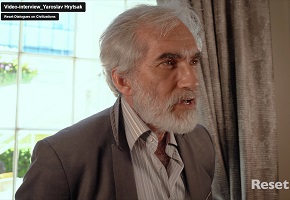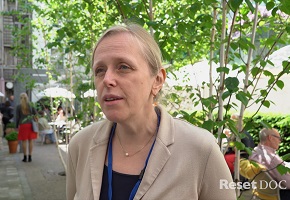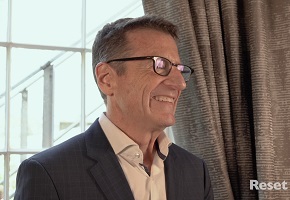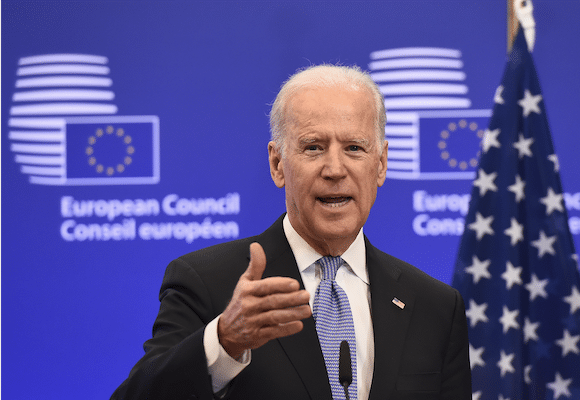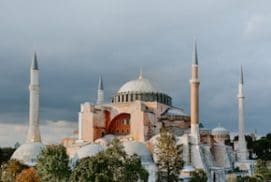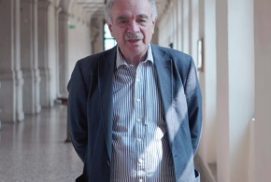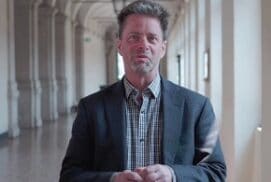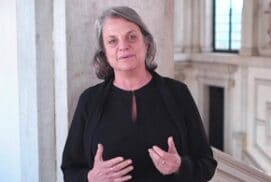
Videos
Europe

- Yaroslav Hrytsak 11 March 2024Post-Soviet Ukraine has been considered a classic case of a “cleft country” torn between the agrarian Ukrainian-speaking West and the industrial Russian-speaking East. The Russian-Ukrainian war has revealed that despite strong regional divisions, Ukraine proved to be a very resilient political community, which led to the emergence of “the third Ukraine.” It is a Ukraine of neither the West nor the East, but of the Center, meant both in regional and political terms, as highlighted by Professor Yaroslav Hrytsak (Ukrainian Catholic University, Lviv).
- Anna Colin Lebedev 23 February 2024How can a war between two communities start without those two communities being involved in a conflict that preexists the war? And how is it that these communities eventually make sense of the conflict as something that is deeply socially rooted? Anna Colin Lebedev, Professor of Sociology at the Université Paris Nanterre, gives her assessment of the social roots of the war between Russia and Ukraine.
- Pieter Judson 23 January 2024“Most empires, but also most nation states are multicultural. The problem with the nation state is that it claims to be the state of one group. But all nation states include many groups. So we must ask the question, how are the minority groups treated? Do they have full citizenship? Often they do not.” From ResetDOC’s latest video-interview to Pieter Judson, Professor of 19th and 20th century history at the European University Institute. It was shot on the margins of Reset DOC’s Dublin Conference 2023, “Nationalism, Nation-Building, and the Decline of Empires.”
- 11 January 2021This video is a recording of the 2nd panel of the conference “The Divided Society After November 3rd” held on the 23rd and 24th of November 2020 in collaboration with the Centro Studi Americani and the Italian Academy at Columbia University. In contemporary democracies, conflict over the correct policy responses to everything from the Covid-19 pandemic, economic inequality, and ethnic diversity continues unabated. In the United States in particular, this conflict has sown profound divisions between the actors of the staunch two-party system, which are not only political but have taken on a distinctly cultural hue. As the 2020 presidential election results and recent events have clearly illustrated, this divide is deeply entrenched in the political landscape and does not show signs of easing.
- 22 July 2020Hagia Sophia, which means “divine wisdom” in Greek, has been subjected to many worldly yearnings of power and symbolism. There is no doubt that altering the status of the great church has always meant domination through control of its symbolism. President Erdogan frequently uses the Ottoman conquest and the right of the sword as part of his symbolic political vocabulary. However, there is a world of difference between the Ottoman conquest and transformation of the Church and Erdogan’s reversal of Ataturk’s decision.
- Michel Wieviorka 5 May 2020Populism is not really a concept and the recent wave all over the world should be called maybe “neopopulism”. Neopopulism is not in itself extremism, nationalism, radicalization. But due to its mythical structure, it may lead to these phenomena.
- Alan Patten 5 February 2020Populist claim that traditional cultures today are under threat. There are three cases were majority rights claims are plausible as a principle of liberal democracy, says Alan Patten.
- Sheri Berman 8 January 2020In the late 20th century most of the center-left parties in the West moved to the center on economic questions that opened up the way for new parties: populist right-wing parties and green parties that robbed the left of its distinctive historical role and profile.
- Yael Tamir 3 December 2019The reemergence of nationalism is a sensible response to the changing social, political and economic circumstances rather than an uncontrolled outburst of destructive human qualities. The less well-off revoke national feelings in order to convince the elites to come back home from their global voyage and put their nation first. How can we progressive liberals combine national and liberal ideas able to give answers to those vulnerable left behind by globalization?


